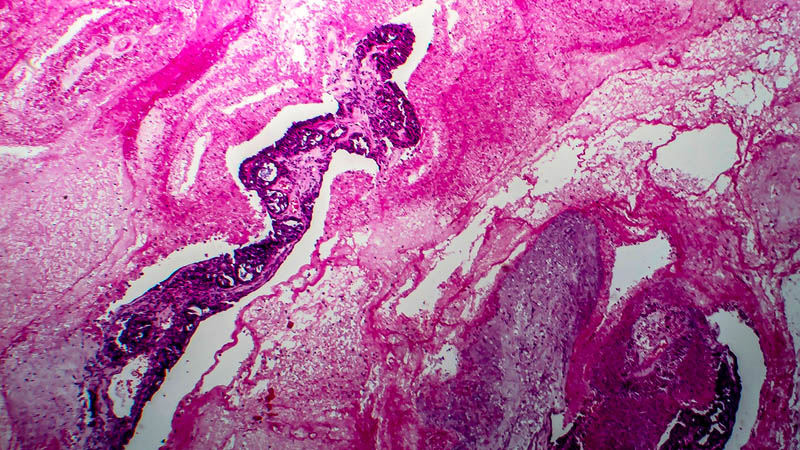Metformin in cancer treatment
Anna Markowska1, Anna Leracz-Jacczak2
 Affiliacja i adres do korespondencji
Affiliacja i adres do korespondencjiDiabetes and obesity are associated with an augmented manifestation of malignant tumors of various localizations. Metformin is commonly used in patients with diabetes type 2, particularly those classed as obese. It has been shown to reduce both incidence of malignant tumors and respective mortality. The action of metformin involves a pleiotropic mechanism: it activates the LKB1/AMP pathway (liver kinase B1/adenosine monophosphate) which inhibits the mTOR pathway and blocks cell division also by its effect on cyclins. Additionally, metformin promotes apoptosis and cellular autophagy, inhibits the activity of metalloproteinases and activates the immune system. Metformin reduces the incidence of lung, pancreas, liver and large intestine cancers. It also reduces the percentage of triple-negative breast cancers and improves response to neoadjuvant chemotherapy in this disease. In endometrial cancer, metformin increases the positive influence of gestagens, potentiates the effects of paclitaxel and improves survival. In cervical cancer, metformin extends time to relapse, and in ovarian cancer, it extends time to progression and improves overall survival. Studies indicate that a destructive effect on cancer stem cells may be its additional mechanism of action.









